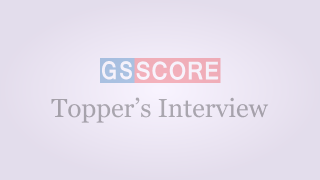Want to know more about this Program or have any queries regarding UPSC CSE preparation?
Mains Test SeriesToday's toppers were yesterday's aspirants. They don't do different things. They just do the right things differently. Toppers’ Corner is your place to discover the SUCCESS MANTRAS of the toppers. Explore their stories, strategies, analyze their copies, see how they achieved top scores, their profile, and more!
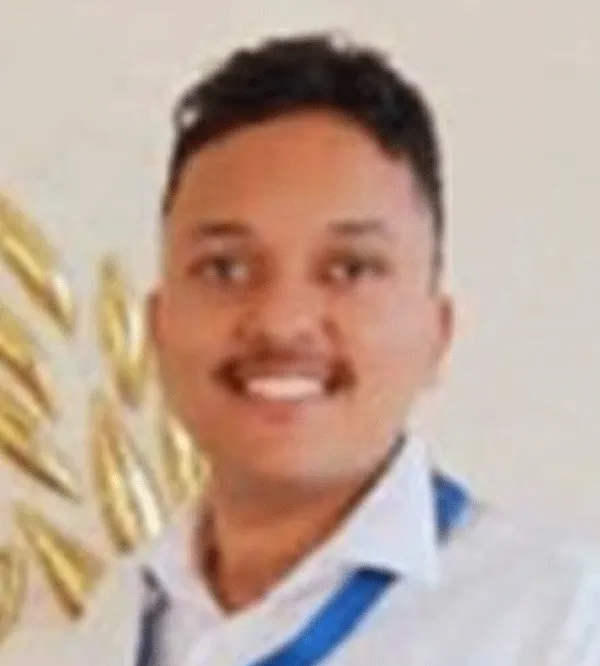
P K SIDHARTH
AIR-4 | 2023

NAUSHEEN
AIR-9 | 2023
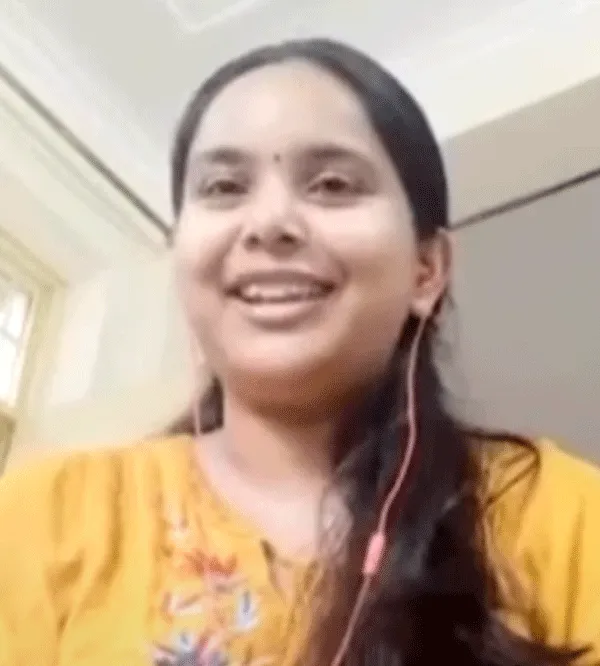
MEDHA ANAND
AIR-13 | 2023
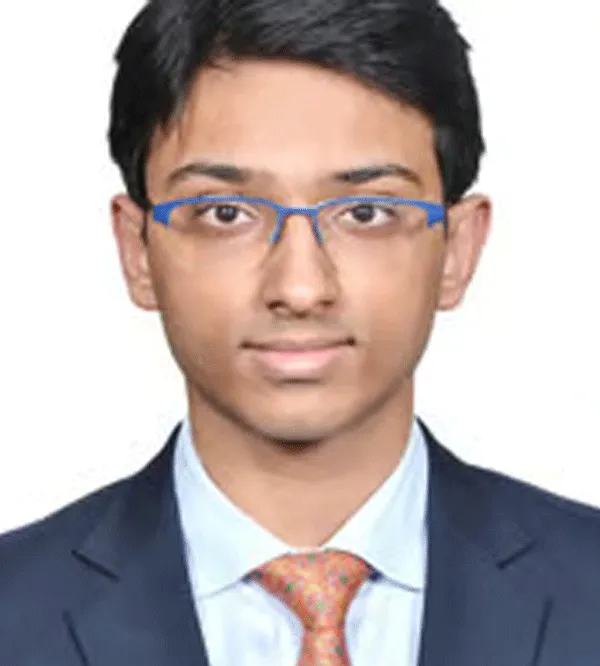
AYAN JAIN
AIR-16 | 2023

ANSHUL BHATT
AIR-22 | 2023

SAURABH SHARMA
AIR-23 | 2023

ISHITA KISHORE
AIR-1 | 2022
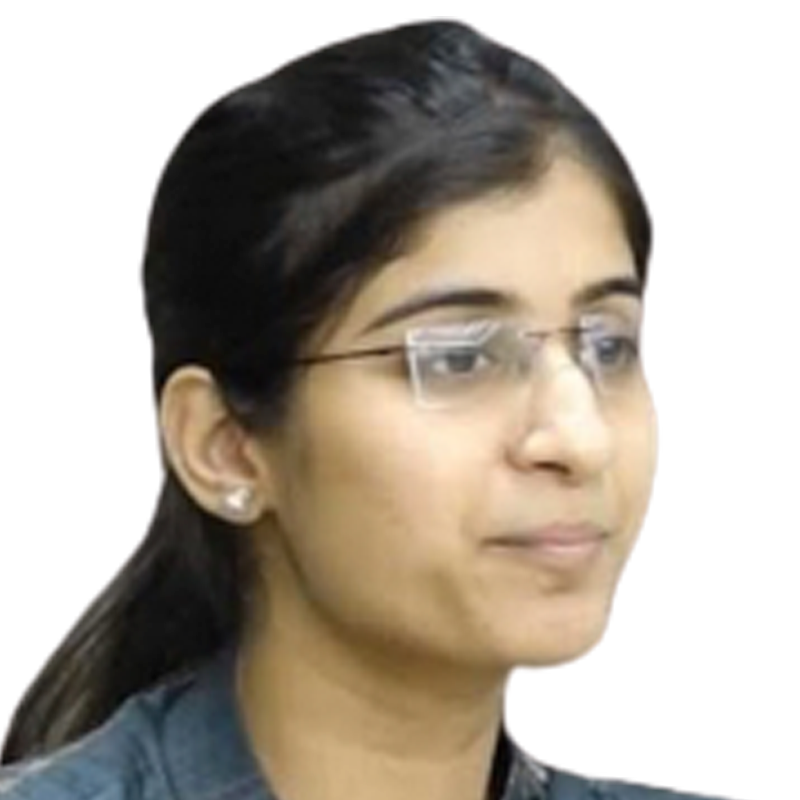
GARIMA LOHIA
AIR-2 | 2022
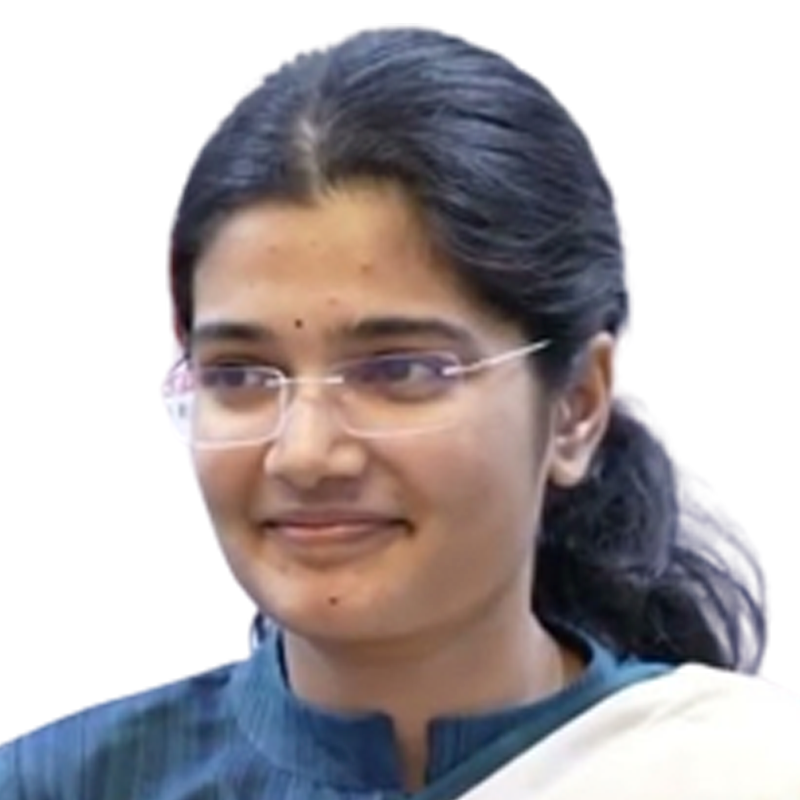
UMA HARATHI N
AIR-3 | 2022
IAS Toppers Interview: Asim Anwar Rank 149 with Management Optional
| Name | Asim Anwar |
| Rank in CSE 2015 | 149 |
| Total Attempts in CSE | 4 |
| Optional Subject | Management |
| Medium | English |
Education
| Class 10 percentage of marks | 83% |
| Class 12Percentage of marks | 85% |
| Graduation: College and marks | B.E. (Computer Sc) from PES Institute of Technology, Bangalore. Marks: 73% |
| Post graduation: College and marks | PGDM from IIM Calcutta (CGPA: 6.5/9.0) |
| Work experience | Worked as an investment banker for six years prior to writing UPSC |
IAS Score: What were the basic mantras of your success?
Asim Anwar: Proper planning, perseverance and most importantly, enjoying the preparation journey without too much of stress or worry about outcome.
IAS Score: What were your strategies for the lengthy syllabus of General Studies for both Prelims and Mains?
Asim Anwar:
- Complete the entire GS mains syllabus (including GS4 concepts), at least a month before prelims. This will ensure that you will focus on writing practice and not waste time trying to research new stuff just a month or two before mains.
- For prelims, try an extensive approach to study material. Since questions can come from anywhere, you never know which book may help you answer a tricky question, especially from areas like ancient history and culture.
IAS Score: Did you integrate your Prelims or Mains preparation or was it separate in the changing scenario?
Asim Anwar: Integrated approach works best, especially when covering the topics common to both. If the static syllabus of prelims is well covered, then GS Mains becomes a question of just revision and updating the current affairs.
GS Preparation for Prelims (Summary)
| Study material / Guidance | |
| Basic Books | NCERTs (mainly 11th and 12th) – for Geography, ancient history, Laxmikanth Polity, Bipin Chandra (Struggle for Independence), Economy by Ramesh Singh, Economic Survey |
| Current Affairs | Newspapers: The Hindu, Mint (selective reading of editorials)
Monthly current affairs of Vision IAS |
| Any other | Regular scanning of online sources: prsindia.org, insightsonindia.com, iasscore.in, mrunal.org |
Optional Subject Preparation (Summary)
As my optional was management, I mostly revised what I had already studied during MBA, with selective focus on few topics that are tested frequently as per previous year trends. Due to its wide coverage, it is not possible to start from scratch andread every standard book (listed below) on each topic cover to cover.
| Study material / Guidance | |
| Basic Books | Standard books from my MBA studies for each topic: Robbins (OrganisationBehaviour), Kotler (Marketing), Brearley Myers (Finance), Levin & Ruben (Statistics), Porter (Strategy) etc. |
| Current Affairs | For economic issues: same as GS 3. Some key corporate developments from business newspapers (eg. Mint) to supplement answers with current examples |
| Answer Writing | Practiced writing a few answers for previous years questions |
| Any other | Some select articles from Harvard Business Review |
IAS Score: How did your prepare for essay.
Asim Anwar:
- Having a good reading habit from the beginning covering diverse areas is the only long term strategy that works for essay.
- A strong hold on current issues (political, governance related and economic) is the key to generating ideas for the essay. For thematic issues (eg. Education, rural development, healthcare, agriculture etc), last 12 months issues of Yojana magazine are a good source to find ideas in a single place).
- Creating a coherent structure and flow of ideas during the essay is more important than raw content. For this, I would suggest practicing at least 4-5 essays from diverse topicsbefore the mains and getting it evaluated by peers.
IAS Score: Did you adopt any specific strategy for GS Paper 4?
Asim Anwar:
- For the theoretical concepts, I glanced through a book by SubbaRao et al. This was only to developing an understanding and a vocabulary in the topics.
- Used examples liberally: From personal experiences or from the lives of well known personalities
- Apart from this, I practiced case studies from mock papers and tried to analyse them from multiple perspectives
Here, I should add that I am grateful to Late Sri SK Mishra sir (GS Score) from advising me on the approach to this paper on the occasions when I had an opportunity to meet him.
IAS Score: What were the sources of information for general reading? How did you come to know that which sources of reading materials are standard?
Asim Anwar: The basic books (mentioned earlier) need to be read multiple times for a hold on concepts. As an addition, one can read information online, or in magazines etc. As I did not attend classroom coaching, I relied heavily on standard books based on the advice of senior aspirants.
IAS Score: What is your advice on notes-making for other aspirants?
Asim Anwar: One should make notes if he/she is in the habit of doing so. I did not make extensive notes from the books. I preferred underlining the key points for revision as I read them.
For current affairs, I made short 4-5 line summaries of the newspaper editorials (if relevant) for quick revision at a later date.
IAS Score: How did you manage your time during the preparation?
Asim Anwar: As I was working (or in training) most of the time, I did not have the luxury of long hours of preparation. I preferred breaking down the time available into small bits, of say 30 minute each, and focused on completing a concept or a section within that time.
No topic can be completely covered to one’s satisfaction. It is best to set a limit to the number of hours dedicated to each topic (depending on weightage), and move on to answer writing practice (for mains) at the earliest. There is no point in doing Phd level research on any topic for GS.
IAS Score: What was your style (paragraph or point format) of writing in the exam? How was it distinct from the general writing style? How did you develop this writing style?
Asim Anwar: I have always preferred writing in points. This way, you can clearly express your arguments especially on opinion oriented questions and makethe examiner’s job easier.
Most questions in GS papers consist of sub-parts. I focused on writing, say 2-3 points on each sub-part and then writing a small link paragraph to introduce my answer to the next sub-part. That way, the flow of the answer is maintained.
IAS Score: So much focus is being given to Test Series, both for Prelims and Mains, in your opinion how useful are they, in the course of a preparation process? Which Test Series did you join and how useful did you find it to be?
Asim Anwar: Test series are very important in my opinion, especially for mains. You hardly get 8-9 minutes per answer, so practicing answer writing in an exam environment will help identify if one is bringing out the ideas most effectively within the word and time limit.
I had subscribed to the GS Score and Vision IAS GS test series and found both quite useful.
IAS Score: Civil Services Exam process is quite strenuous. It requires long hours of constant study. How did you maintain your tempo and what did you do to break the monotony of preparation?
Asim Anwar:
- I never treated the exam as an end in itself. It was a question of balancing preparation with regular work and family life. During preparation in my first two attempts, I worked as a banker (got 486th rank in CSE 2013). In my last attempt, I was in my IRS training during all three stages of the exam.
- Never spend days focused on getting mastery over any single topic. Once you have covered a concept or two, move on to another subject (eg. optional) to break the monotony.
- It is equally important, in my opinion, to develop an inquisitive mind by reading general books (that may not appear to be strictly as per ‘syllabus’), watch TV debates (which have more content and less decibel valueJ) and engage in discussions with other serious aspirants.
IAS Score: The trend suggests that professionals or working people are more successful in this exam. Does this exam prove difficult for Humanities and Social Science background candidates?
Asim Anwar: The exam provides an opportunity for people from all backgrounds to showcase their strengths. Students from humanities background have an edge in GS topics with a writing style more suited to subjective analysis (which students from science and engineering may lack). Similarly, working professionals may fall short on factual knowledge, but will make it up with clarity of thought and maturity that will be reflected in opinion oriented questions and in GS-4 case studies.
IAS Score: Which sources you referred to prepare for Contemporary Issues.
Asim Anwar: Apart from a daily reading of the Hindu, a few supplementary sources for contemporary issues were: PRS India monthly policy review (available on prsindia.org), Vision IAS current affairs monthly compilation and also write-ups on GS Score website.
IAS Score: Given the recent boom in online initiatives to support an aspirant, which were the platforms that you find useful enough during your course of preparation. Please list the sites.
Asim Anwar: Many sites have useful information and articles from successful candidates etc. It is not possible for a candidate to cover all of them in detail. I personally referred to the following, at various points of time during my preparation period:
- Insightsonindia
- iascore.in for write-ups and notes available for free download
- Iasbaba
- Civilsdaily
- mrunal.org (in earlier attempts)
IAS Score: What is your advice to the candidates who is still in the process of preparing for this examination?
Asim Anwar:
- Never say die: I knew that once I have prepared satisfactorily, getting a decent rank was just a matter of time. It may just take one or two extra attempts for everything to fall in place.
- Enjoy the journey: If not, you can never sustain yourself in this marathon. Dedicate some time to pursue hobbies etc, which will help you at the interview stage.
IAS Score: Your word for future aspirants
Asim Anwar: Be clear of the reasons for entering this race, and the overall success probability. Out of the nearly ten lakh candidates who apply every year, less than 300 candidates can be considered successful in terms of getting the top service of their choice. So be prepared for the long haul. In case you don’t get what you desired, take it as a positive learning experience and move on. After all, luck plays a huge role in the final outcome.
Asim Anwar Mark sheet
| Paper | Year 2015 | Year 2013 |
| Prelims | GS: 125; CSAT: 191 |
GS: 84; CSAT: 172 |
| Essay (Paper 1) | 128 | 98 |
| GS 1 (Paper 2) | 90 | 58 |
| GS 2 (Paper 3) | 65 | 68 |
| GS 3 (Paper 4) | 88 | 78 |
| GS 4 (Paper 5) | 97 | 105 |
| Optional 1 (Paper 6) | 130 | 82 |
| Optional 2 (Paper 7) | 111 | 94 |
| Written Total | 709 | 583 |
| Personality Test | 209 | 206 |
| Total Score | 918 | 789 |


